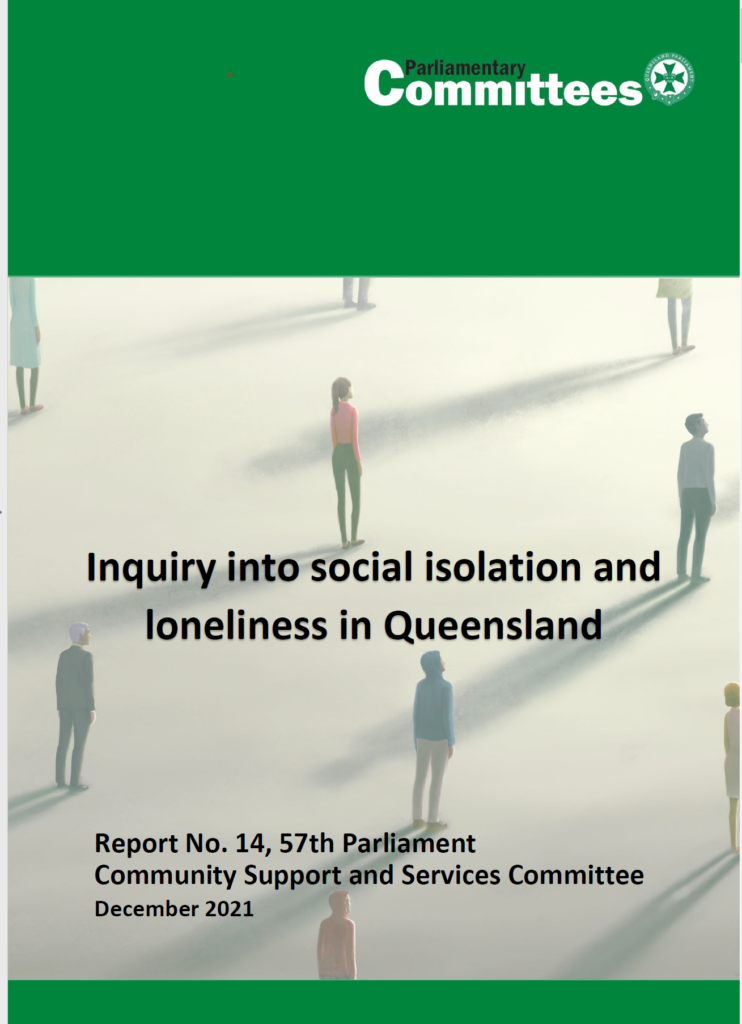In May 2021, the Queensland Government’s Community Support and Services Committee launched an inquiry into social isolation and loneliness in Queensland. The Life Course Centre, in conjunction with the Institute for Social Science Research at UQ, provided a detailed submission to the inquiry that highlighted relevant Centre research as well as national and international best practice examples of mitigating social isolation and loneliness.
Our submission covered:
- drivers of social isolation and loneliness;
- protective factors; measuring social isolation and loneliness and the effectiveness of government programs;
- services for connecting individuals and communities; and
- targeted support to vulnerable groups.

After consideration of submissions, the Community Support and Services Committee tabled a report on the inquiry to the Queensland Parliament in December 2021. Of the 196 submissions received, our submission was heavily referenced throughout the tabled report.
… one of these initiatives, Be Connected (2016–2021), supports older Australians to develop digital skills and confidence… an analysis of participation found increased digital connections with family and friends, and demonstrated good value for money with $4.01 created in social value for every $1 invested.
(reference 536, page 107)
Some key references included:
- The Life Course Centre identified that the two key life transitions that elevate the risk of loneliness are adolescence and retirement (reference 129, page 26)
- UQ’s Institute for Social Science Research and the Life Course Centre expanded on the benefits of governments supporting digital inclusion (reference 536, page 107)
The report recommended the Queensland Government develop a 10-year state-wide strategy to address social isolation and loneliness, including identifying social determinants and preventative factors, and improving digital access and inclusion.
This impact was informed by the following Life Course Centre research:
- Biswas, T., Scott, J. G., Munir, K., Thomas, H. J., Huda, M. M., Hasan, M. M., de Vries, T., Baxter, J. & Mamun, A. A. (2020). ‘Global variation in the prevalence of bullying victimisation amongst adolescents: Role of peer and parental supports’. EClinicalMedicine.
- This research was showcased in Making a Difference: Outcomes of ARC supported research 2020–21, ‘Teen Mental Health Study’, pp 24–25.
- Nguyen, H.T., Mitrou, F., Taylor, C. L. & Zubrick, S.R. (2020). ‘Does retirement lead to life satisfaction? Causal evidence from fixed effect instrumental variable models’. Life Course Centre Working Paper Series: 2020-10.
- Kettlewell, N. & Lam, J. (2020). ‘Retirement, social support and mental wellbeing: A couple-level analysis’. Life Course Centre Working Paper Series: 2020-15.
